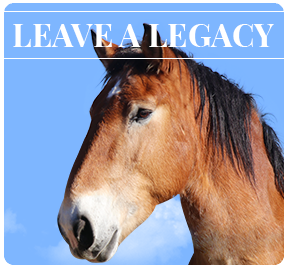By Josh Brodesky
Arizona Daily Star
Tucson, Arizona | Published: 02.17.2008
When it came time to put down her two horses earlier this month, Donna Rice never thought of sending them to slaughter.
She had raised the quarter horses, and they had won numerous shows.
Slaughter would have been an injustice.
“They were show horses, and they won me a couple of buckles and awards and everything,” Rice said. “They were good to me. They showed me the best years of my life.”
Golden Weave, 25, and her offspring, Golden General, 18, might have fetched $200 each at auction. The euthanizations and burials cost $365; had Rice cremated the horses, the cost would have been higher.
Coming up with the money wasn’t easy. Rice, 61, has been crippled by carpal tunnel syndrome and has taken a leave of absence from her job as a massage therapist. With money tight and hay prices soaring, she said she couldn’t afford both the medicine and the hay to take care of her aging horses, who were mired with arthritis, bone disease and pain.
“I’ve just been struggling to take care of them,” she said. “I just knew I couldn’t do it anymore, to keep my house going and everything else.”
Rice received $100 from Equine Voices Rescue & Sanctuary to help cover the euthanization bill.
The cost of euthanization can be prohibitive for a lot of horse owners, and some see slaughter as an alternative. To help make euthanization and burial/cremation more affordable, Karen Pomroy of Equine Voices said she is setting up a fund, paid for by donations, to assist people who need to put down their horses.
There is no target goal for how many horse owners they want to help, but Pomroy said assistance will be given on a sliding-scale basis depending on financial need. She envisions adding a Web page where the public can donate money for the cause.
“The alternative, which is slaughter, is really not a good alternative,” Pomroy said.
Lloyd Trachtenberg, who runs Leather & Lace Lodge in Palominas, about 90 miles southeast of Tucson, said he has never sent his horses to slaughter. But he said the poor economy, coupled with overbreeding, has taken a toll on the horse trade.
“You can’t afford it,” he said. “Horses are a luxury item. It’s a nice play toy that you gotta have the money to put into.”
Another possible outcome is abandonment, something that many ranchers say is happening already because of high hay prices.
But Brad Cowan, the state livestock inspector for Pima County, said he hasn’t seen an increase in abandoned horses, per se. While that’s possible, he said it’s more likely that owners will just skimp on feed.
“Hay prices are very high,” he said. “…We are going to see more older and thinner horses.”
View the original article with photos and comments, click here.
Contact reporter Josh Brodesky at 807-7789 or jbrodesky@azstarnet.com






